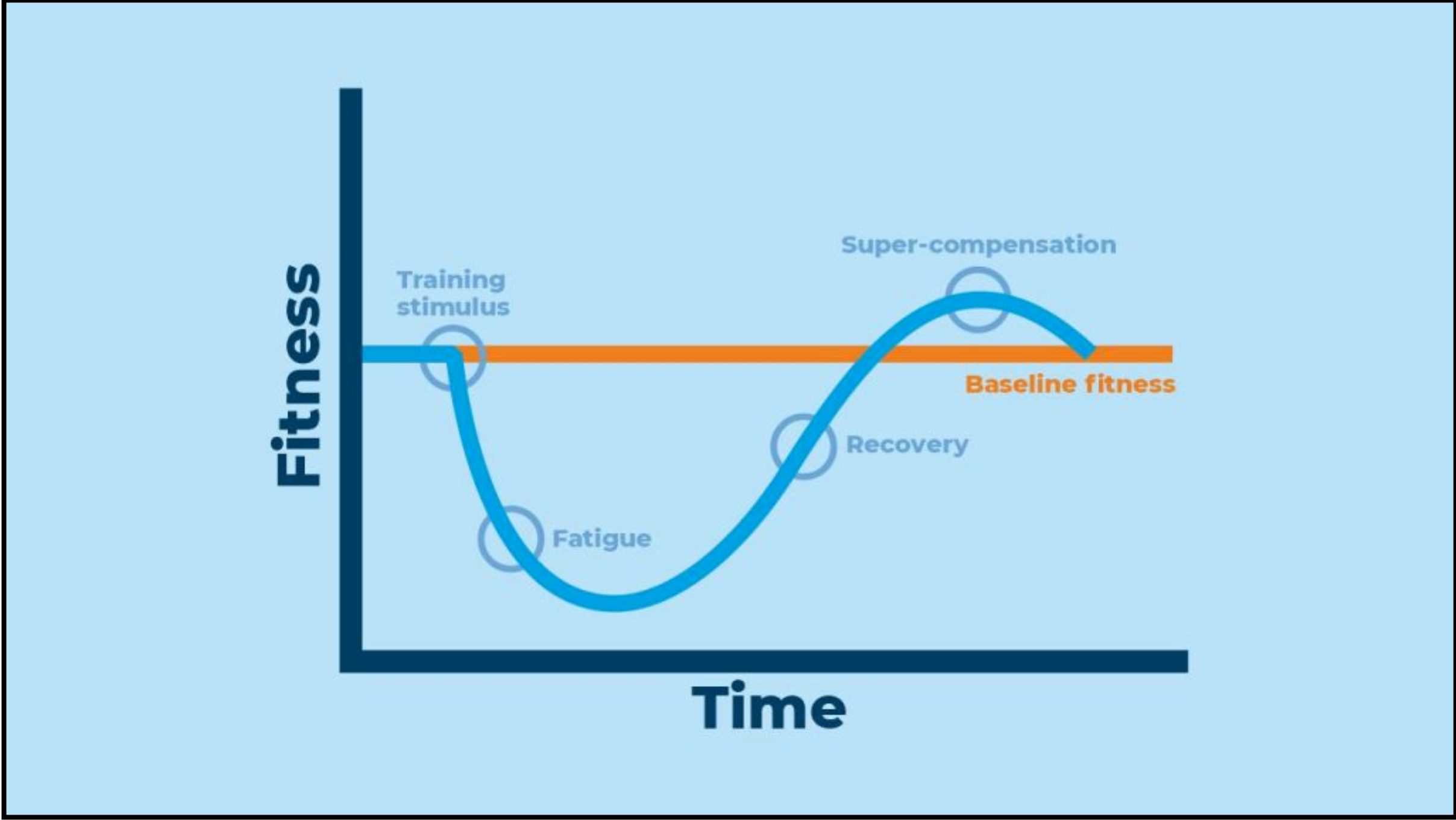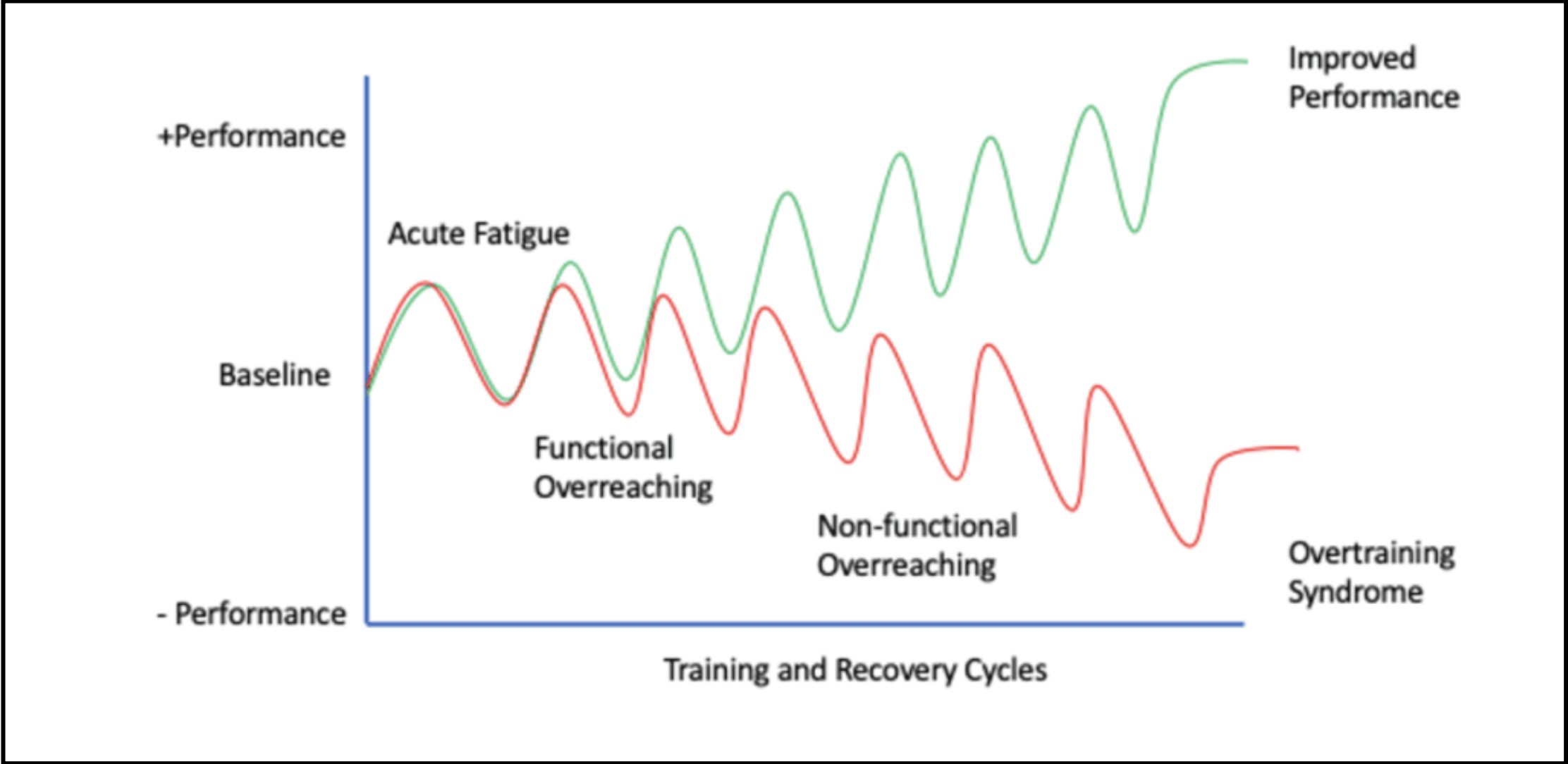What is Overtraining?
Training for golf involves an effective management of training and recovery to allow athletes to progress without pushing themselves too far beyond their physical capability. One word that consistently arises among coaches and athletes is “overtraining”, but what does it mean?
Overtraining is a generic term used to describe when an athlete is experiencing fatigue, occurring when there is an imbalance between training and recovery. In the long-term, this can lead to reduced performance and can require an athlete to take time off exercise to allow for recovery.
On a daily basis, athletes will become fatigued from individual training sessions, referred to as acute fatigue, where performance is reduced for 24-72 hours. However, with recovery, performance is subsequently increased, a sensation referred to as super compensation. When athletes become highly conditioned to exercise, coaches may choose to put athletes in a state of functional overreaching, whereby a series of difficult training sessions are prescribed over a 7-14 day period, making the athlete more fatigued and reducing performance. However, with appropriate recovery following this, athletes will experience a super compensation effect.

Continuing this cycle of training and recovery over a long time period will inevitably see improvements in performance. However, increased training volume/intensity beyond an athlete’s capabilities, or without appropriate recovery, leads to non-functional overreaching, where performance is reduced for weeks to months, and athletes commonly have to take time off to return back to their previous performance level. A more severe state of overreaching is known as overtraining syndrome, where an athlete has been training too hard for multiple months, resulting in a major reduction in performance and recovery can take a minimum of 2-3 months. It is important to remember that athletes who experience either non-functional overreaching and overtraining syndrome will not see any performance benefits after recovery.

What are the effects of improper training and recovery?
While fatigue is a common factor in daily training, it is important to identify when you may be beginning to overtrain. These symptoms include:
- Persistent stiff, sore and fatigued muscles lasting more than a week
- Decreased performance and concentration
- Increased rate of illness and irritability
- Loss of appetite
- Psychological burnout
How can you overtrain as a golfer?
It is important to have an appropriate understanding of all the factors that may contribute to fatigue, however, within structured training, the below four factors should be considered and appropriately prescribed to avoid overtraining:
Training volume – Session duration and frequency, number of holes, rounds or shots completed.
Training intensity – Effort required, recovery available within session, intensity of swing.
Recovery – Time available between sessions, time spent not being active.
Exercise progression – The development of the three factors above to increase difficulty e.g. increased sessions per week, increased swings on the range, decreased recovery between sessions.
While golf may seem like a difficult sport to become overtrained in, it is important to remember that not all fatigue is physical, and not all comes from structured training. Once you factor in the additional hobbies or sport commitments, life or academic stress, self or external pressure, competitions, travel and playing golf socially, it is easy to see how over time this can cause a negative impact on both physical and mental recovery, and subsequently golf performance.
How can you prevent overtraining as a golfer?
Thankfully, overtraining is avoidable with some thought towards your exercise routine and habits. Below are three key areas to consider when trying to avoid overtraining:
Gradually progressing training – By gradually increasing training over time (changes in volume/intensity), it progresses your physical ability while giving your body time to adapt to the training. A good way to ensure training is gradually progressing is to ensure it is increased by no more than 10% each week. For example, if an athlete ran for 100 minutes over 1 week, this training would increase to 110 minutes the following week.
Appropriate rest and recovery – Consider how much recovery you give yourself and what you do in your recovery time, as this will impact how much energy you have for training. An important aspect to consider is ensuring your sleep and nutrition is sufficient to maintain energy levels and avoid any reductions in training quality.

Exercise variation – While the focus may still be golf, it’s important to keep variety throughout your training. Varying your training can not only prevent the likelihood of overuse injuries, but it can also limit the psychological fatigue associated with completing the same training over a long time period.
How can you put this into practice?
Talking with a coach and taking time to plan your training appropriately to ensure progression, recovery and training variation is an essential step to avoid overtraining. This enables you to both ensure you are covering all aspects of your golf game and allows for recovery to be incorporated. Additionally, planning your recovery methods, specifically regarding how to optimise your sleep and fuel yourself for training, will be an essential step to managing your fatigue. This will ensure that you are always training with appropriate energy levels and can capitalise on any opportunities for development within sessions.




